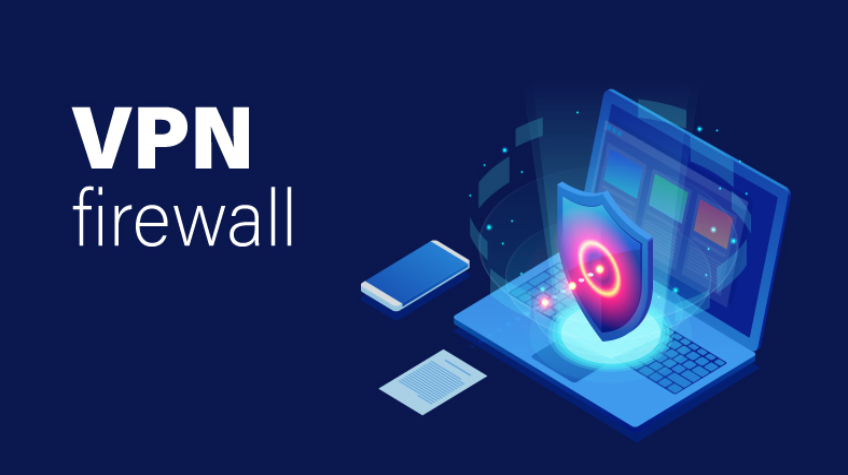
You’ve probably heard of firewalls and VPNs. While both protect your devices from cybersecurity threats, the ways by which they do so are vastly different. Both are vital for your security, and in this article, we’ll go through the differences between a firewall and a VPN.
Here we go…
Firewall
As the name suggests, firewalls serve as a barrier between your device and your network. Their role is to “scrutinize” and “verify” all traffic that enters and exits the network. It’s a device with powerful centralized management and reporting capabilities that prevents unauthorized users from accessing private networks connected to the Internet.
If a threat is detected, the user will be notified, and traffic will be blocked until the user confirms that the danger is real. Windows Firewall comes preloaded with the operating system. When you install new software on your computer, you may receive a notification that a program is attempting to access your computer and that you must allow permission. That’s how the Firewall works.
There are two types of firewalls, a network firewall, and a desktop firewall. A desktop firewall is a type of software, while a network firewall is a type of hardware. Installing a firewall will help you protect your private network from security breaches. When used in unison, firewalls dramatically lower the likelihood of hackers and phishers penetrating your computer or network.
Also Read: Best Web Application Firewalls (WAF)
VPNs
A virtual private network, famously known as VPN, encrypts all of your device’s traffic instead of putting up a barrier between your device and your network. Your data is encrypted, making it unreadable to everyone else on your network, including the government. This is the basic role of VPNs towards security.
VPNs allow you to connect to another private network ‘virtually’ and frequently, as well as encrypt your connection with technologies like IPSec. VPN masks your IP address when using public wifi by routing your internet connectivity through a remote server, safeguarding you from attempts to get your data or location.
These days, it’s good to have both a firewall and a VPN to have complete protection from cybercriminals.
Differences between a Firewall and a VPN
The following are some key distinctions between firewalls and VPNs:
- Firewalls protect your computer from malicious assaults by allowing you to customize your security settings and who you allow accessing your computer. While VPNs protect your location as well as your personal information, such as financial information and passwords, from prying eyes. They do not, however, provide total malware protection for your internal network.
- A firewall safeguards incoming traffic by restricting ports from outside intruders. On the other hand, a VPN protects outbound traffic by allowing you to change your public IP address.
- A firewall is used to keep unauthorized connections from a public network from reaching a firewall-protected device. While a VPN is often used to prevent data theft from a connection, which is common while using open (unencrypted) WiFi.
- A firewall protects your computer from any kind of malicious threat. They monitor both incoming and outgoing network traffic. They act as a barrier between your computer’s internal network and any external networks, like the Internet. While VPNs don’t protect your computers. They can only safeguard data in the VPN tunnel or from the point where the network connection was established.
- Firewalls can only set limits that you have access to on your computer; however, VPNs can overcome geo-restrictions.
- You can configure your Firewall to prohibit specific websites and online services, or you can create firewall exceptions for websites that need access to your internal network. VPNs don’t allow you to create any packet or network restrictions from your own computer.
- Lastly, a Firewall can be used by both personal and corporate clients to safeguard their systems from malicious threats or external threats. While VPNs are typically used by businesses to allow employees to access their remote servers from different locations safely.
Related:
1) What does 502 bad gateway mean
2) What is the root reason for Firewall Failure?
Wrapping it up…
So these are the significant differences between a Firewall and a VPN. We hope that this article has made it clear that both a firewall and a VPN are critical, especially if your company handles client data. Yes, they both protect you against external attacks and network breaches.






